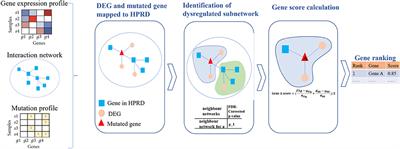ORIGINAL RESEARCH
Published on 22 Jul 2021
Multi-Omics Data Fusion for Cancer Molecular Subtyping Using Sparse Canonical Correlation Analysis

doi 10.3389/fgene.2021.607817
- 4,404 views
- 17 citations
18k
Total downloads
89k
Total views and downloads
ORIGINAL RESEARCH
Published on 22 Jul 2021

ORIGINAL RESEARCH
Published on 23 Jun 2021

ORIGINAL RESEARCH
Published on 22 Apr 2021

REVIEW
Published on 12 Apr 2021

ORIGINAL RESEARCH
Published on 19 Feb 2021

ORIGINAL RESEARCH
Published on 03 Feb 2021

ORIGINAL RESEARCH
Published on 15 Jan 2021

ORIGINAL RESEARCH
Published on 14 Dec 2020

REVIEW
Published on 25 Nov 2020

DATA REPORT
Published on 06 Oct 2020
